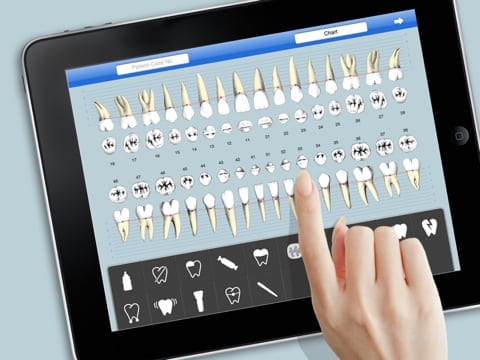 If you’re in need of teeth replacement, restoration options include dental bridges, traditional dentures and dental implants. For many years, dental bridges were the primary method used for the replacement of a single tooth or several, and removable dentures the standard restoration option for extensive or total tooth loss.
If you’re in need of teeth replacement, restoration options include dental bridges, traditional dentures and dental implants. For many years, dental bridges were the primary method used for the replacement of a single tooth or several, and removable dentures the standard restoration option for extensive or total tooth loss.
However, today’s optimal teeth replacement option is dental implants, dental professionals (like Dr. Emery) preferring them to traditional restoration choices due to their clear advantages in terns of aesthetics, oral health, longevity and functionality.
Teeth Replacement Option: Dental Bridges
Fixed dental bridges are a common option to span the gap left by the loss of a single tooth or several teeth. It consists of crowns on each end, which are attached to natural teeth on either side of the gap, and a replacement tooth or teeth between them to fill that gap. Attachment is done by re-contouring the natural teeth, removing part of the enamel to allow the crowns at each end of the bridge to be fitted over them.
The advantages of a fixed bridge include improving the ability to chew and speak, maintaining the shape of the face, preventing remaining teeth from drifting out of position and an improved smile. Among the most notable disadvantages, as compared to dental implants, are that bridges do not protect against bone loss and they are not a permanent fix. They can be expected to last between five and 15 years, and when they do fail, damage to the natural teeth upon which they are anchored is likely.
Dentures
Removable dentures are perhaps the most familiar teeth replacement option. They offer a solution for total or extensive tooth loss, available as partial or full dentures. The typical partial denture is a span of artificial teeth set into a base made to match the color of your gums, held in place with clasps that grip onto remaining natural teeth. A full denture is an entire set of artificial teeth, set into gum colored base.
Advantages of removable denture restoration include restored ability to chew, improved speech, support of facial structure and smile restoration. Disadvantages include a lack of protection against bone deterioration and slipping or clicking during conversation or meals. Mouth sores and irritation can often be a problem, and full dentures will typically need replacement or reworking within five to ten years, as bone loss and receding gum ridges interfere with proper fit.
Dental Implants
Dental implants can be used to permanently replace a single tooth, several teeth or to support full dentures. Implants, typically constructed of titanium, are placed in the jaw in similar fashion to a natural tooth root. As the area heals, the jawbone will grow around the implants, anchoring it firmly in place. Replacement teeth are then attached to the implant posts to complete the restoration.
The most important advantage of dental implants, dental professionals will tell you, is maintenance of bone health. Since the placement of the implant in the jaw simulates a natural tooth root, it exerts pressure on the jaw during chewing. That stress stimulates bone growth, avoiding the bone loss that occurs with other teeth replacement options.
Patients often cite the natural look, feel and function of dental implants as a top advantage, as well as the greater comfort level of restoration that looks and feels just like natural teeth. The chief disadvantage is that not everyone is a candidate for implants. Since placing implants is a surgical procedure, a person must be in fairly good health, and if gum health or bone structure is compromised, restoration can become much more complex.
Of course, Dr. Emery does have options for patients who may be wearing dentures or dental bridges and fear they are not candidates for dental implants. Request your appointment to meet with one of our Board Certified oral surgeons to discuss the options available to you.